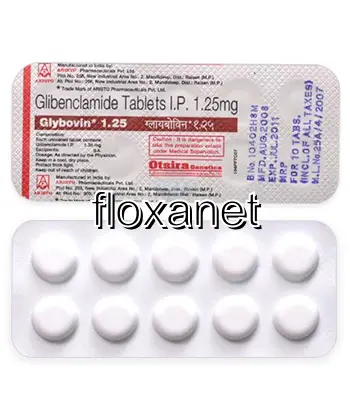| Package | Dosage | Price | Price per Dose | |
|---|---|---|---|---|
| Dosage: 2,5mg | ||||
| 360 pill | 2,5mg | CAD348.44 | CAD0.97 | |
| 180 pill | 2,5mg | CAD187.47 | CAD1.04 | |
| 120 pill | 2,5mg | CAD134.44 | CAD1.12 | |
| 90 pill | 2,5mg | CAD109.82 | CAD1.21 | |
| 60 pill | 2,5mg | CAD79.52 | CAD1.33 | |
| 30 pill | 2,5mg | CAD47.33 | CAD1.57 | |
| Dosage: 5mg | ||||
| 360 pill | 5mg | CAD306.78 | CAD0.85 | |
| 180 pill | 5mg | CAD178.00 | CAD0.98 | |
| 120 pill | 5mg | CAD124.97 | CAD1.04 | |
| 90 pill | 5mg | CAD98.46 | CAD1.10 | |
| 60 pill | 5mg | CAD68.16 | CAD1.14 | |
| 30 pill | 5mg | CAD39.75 | CAD1.33 | |

Glibenclamide Description
Overview of Glibenclamide
Glibenclamide, also known as glyburide in some regions, is an oral medication commonly prescribed to manage type 2 diabetes. It belongs to the class of drugs known as sulfonylureas. The primary function of Glibenclamide is to stimulate the pancreas to produce more insulin, helping to lower blood sugar levels in individuals with diabetes. This medication has been in use for many years and remains a key component of diabetes treatment plans in many countries.
Effectiveness and Benefits
Many users report that Glibenclamide effectively controls their blood glucose levels when used as directed. It offers a reliable way to manage hyperglycemia and helps prevent long-term complications associated with unmanaged diabetes, such as nerve damage, kidney disease, and vision problems. Patients often notice an improvement in their overall health and energy levels after consistent use of the medication. Regular monitoring of blood sugar is recommended to ensure optimal results and to adjust the dose if necessary.
Administration and Dosage
Glibenclamide is typically prescribed in the form of tablets taken once or twice daily, usually before a meal to maximize its effectiveness. The dosage depends on individual factors like age, weight, blood sugar levels, and response to the medication. It is important not to alter the dosage without consulting a healthcare professional. Consistency in taking the medication as prescribed is crucial for maintaining stable blood glucose levels and reducing the risk of side effects.
Potential Side Effects
Like any medication, Glibenclamide can cause side effects. Common issues include hypoglycemia, which manifests as sweating, dizziness, hunger, or shakiness. Patients must be cautious to recognize these signs and take appropriate measures, such as consuming fast-acting carbohydrates. Some individuals may experience gastrointestinal discomfort, headaches, or flushing. Rarely, allergic reactions may occur, characterized by rash, itching, or swelling. It is essential to report any unusual symptoms to a healthcare provider promptly.
Precautions and Interactions
Patients with certain health conditions, such as kidney or liver impairment, should inform their doctor before starting Glibenclamide. Alcohol consumption can increase the risk of hypoglycemia and should be minimized or avoided. Drug interactions are also possible; medications like diuretics, certain antibiotics, or other diabetic drugs may interfere with Glibenclamide’s effectiveness. Regular check-ups and blood tests are advised to monitor the medication's impact and adjust the treatment plan accordingly.
Overall User Experience
Users who adhere to their prescribed regimen often report satisfactory results from Glibenclamide. They appreciate its ability to help maintain better blood sugar levels and reduce the frequency of complications related to diabetes. Some mention the importance of combining this medication with a proper diet and exercise for optimal outcomes. However, others highlight the need for vigilance regarding potential side effects, especially hypoglycemia. As with all medications, individual responses vary, and ongoing communication with health professionals is key to achieving the best possible management of diabetes.